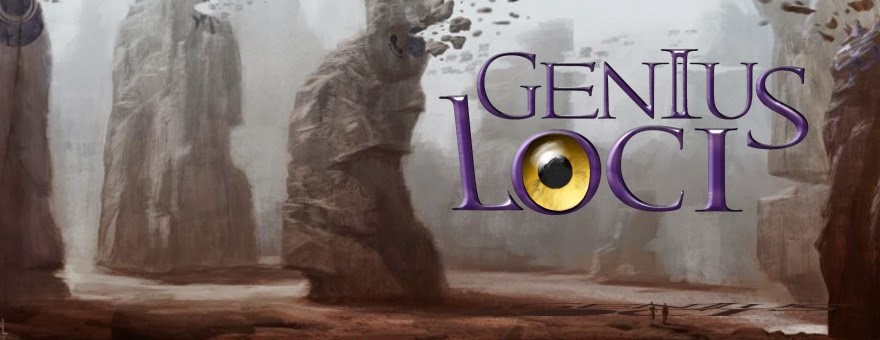 Plasmats are the elementarians of fire and the south. They are made of hot air, made visible by structures of molten dirt - the enormous heat tranforms any material into precious stones, and plasmat gems are said to have great supernatural properties. Their shape is a bulky legless torso with a flat head and strong arms, the size changes fluidly between several and several dozen meters. It's the plasmats' choice what they burn. They have a good feeling for earth's heat and often travel to new volcanoes to greet them.
Plasmats are the elementarians of fire and the south. They are made of hot air, made visible by structures of molten dirt - the enormous heat tranforms any material into precious stones, and plasmat gems are said to have great supernatural properties. Their shape is a bulky legless torso with a flat head and strong arms, the size changes fluidly between several and several dozen meters. It's the plasmats' choice what they burn. They have a good feeling for earth's heat and often travel to new volcanoes to greet them."Overcoming weaknesses is a principle of the south, and my plasmat teacher really made it a point. When he sent me into the world, I felt like I had been thoroughly reconstructed."Plasmats are seen as harbingers of change and are counted among the good omens. They are also muses and can light the spark of inspiration in both leaders and artists, who seek them out to be taught. Plasmat mentors are relentless, but very successful, and all their apprentices have done great deeds. It's said the rhu'khach had been under their blessing.
— Crowned Aslahenaed of Brighthold
"I heard a plasmat is on his way to the Gorngon plateau. I guess soon it won't be so flat anymore."Artists' notes
— Ferha, messenger
I am rather fond of the name plasmat. I was looking for nice, innovative names for elementarians, and classic dryads and stone giants were nicely completed by fleeters and plasmats, I think. Teaching great heroes is a bit inspired by the centaur that taught Hercules - mythical creature teaching mortal.


